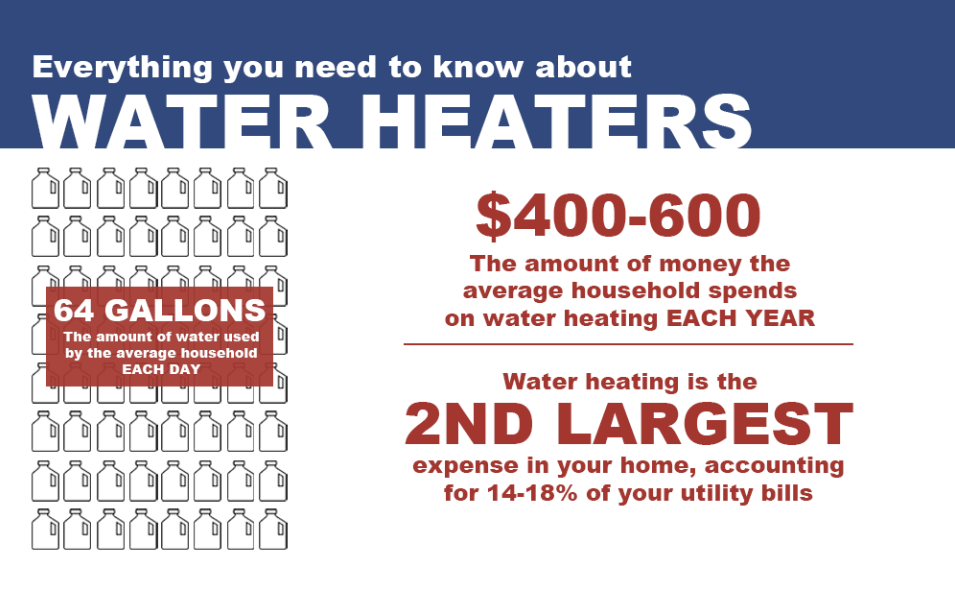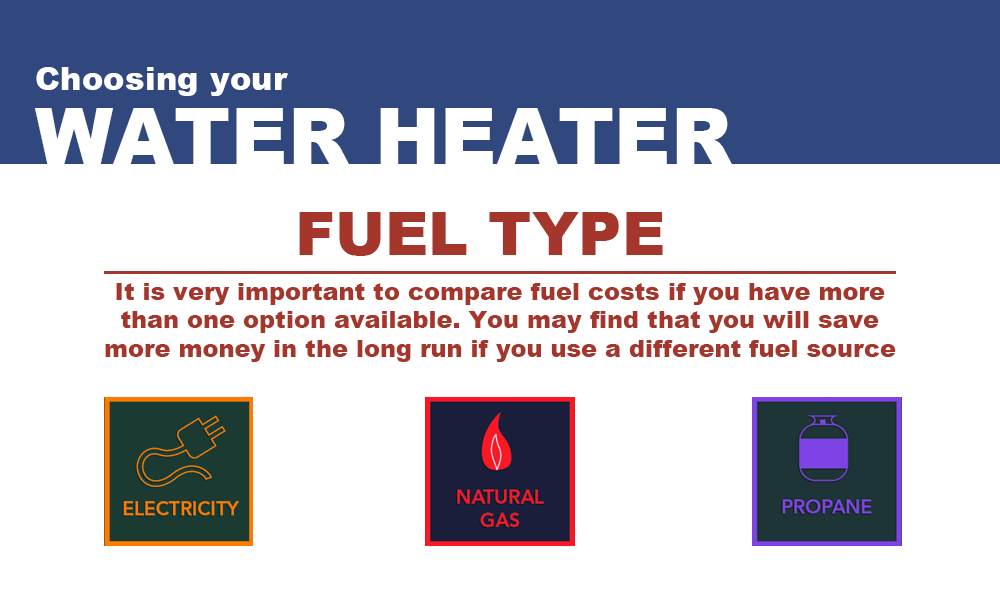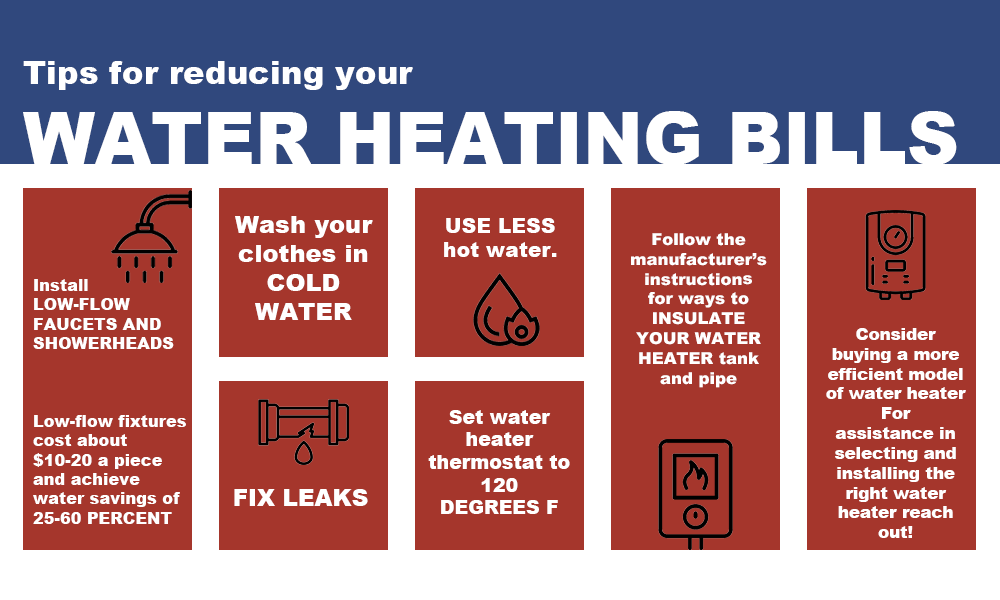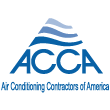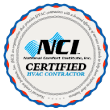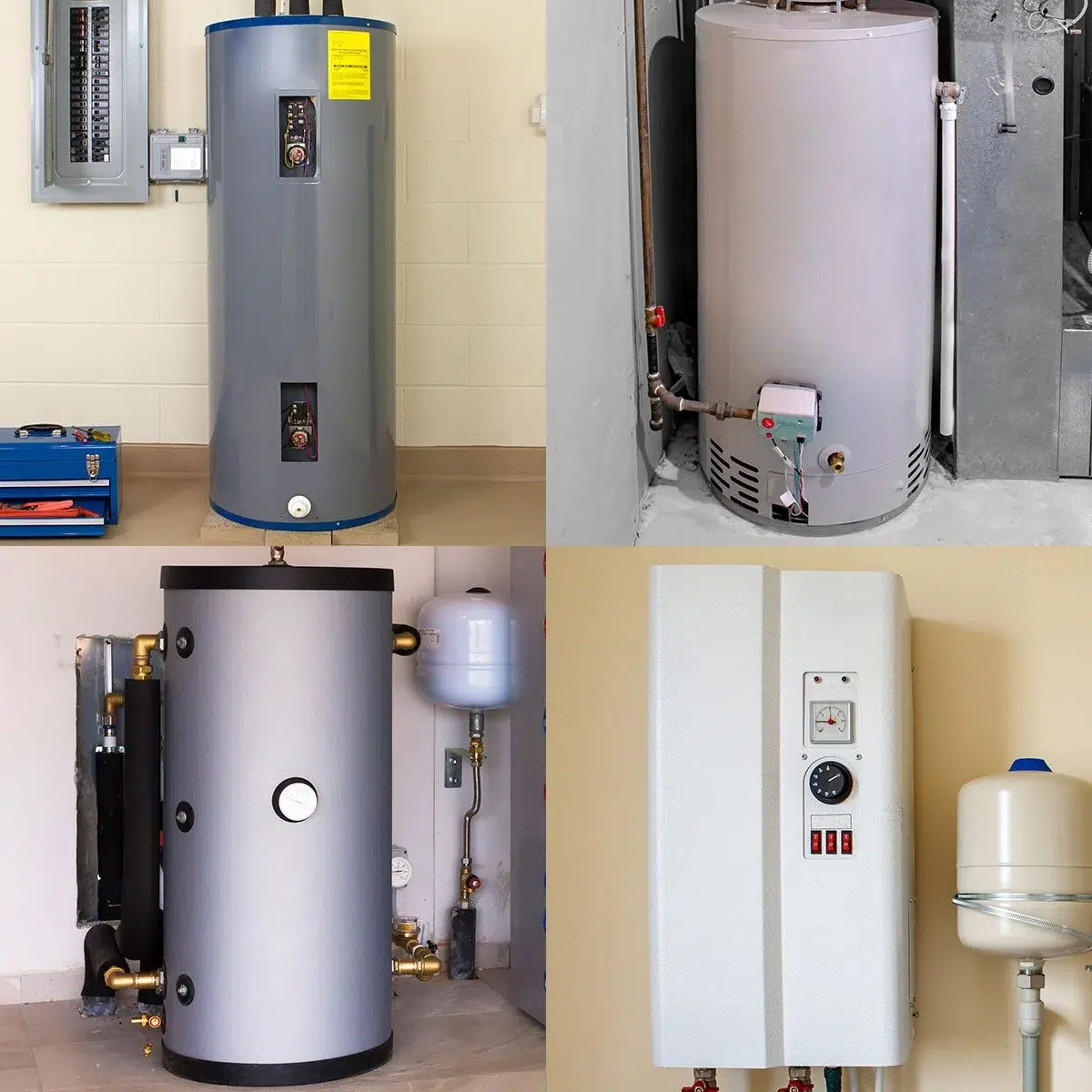
Welcome to our guide on water heaters, where we’ll cover everything you need to know—from selecting the right type of water heaters for your home to essential maintenance, available rebates, and practical tips for saving money and energy. Whether you’re a homeowner considering an upgrade or a renter looking to optimize efficiency, we’ve got you covered.
Types Of Water Heaters
Conventional Storage Water Heaters:
Conventional storage water heaters feature a tank that holds hot water, maintaining a preset temperature. They are cost-effective and easy to install but can be less energy-efficient and have a lifespan of 10-15 years.
Tankless Water Heaters:
Tankless water heaters heat water as it flows through, providing endless hot water without a storage tank. They are compact, energy-efficient, but have a higher upfront cost and a lifespan of 20+ years.
Heat Pump Water Heaters:
Heat pump water heaters move heat from the air to heat water, offering high energy efficiency. They’re ideal for moderate climates, have higher upfront costs, but can save energy in the long run, with a lifespan of 10-15 years.
Choosing Your Water Heater
Natural Gas Water Heaters:
Natural gas water heaters operate using natural gas, providing efficient performance and lower operational costs. They offer faster recovery rates but require proper venting and may have higher upfront installation costs.
Propane Water Heaters:
Propane water heaters utilize propane gas, offering similar benefits to natural gas models, including efficient performance and lower operational costs. However, like natural gas heaters, they require proper venting and may involve higher upfront installation expenses.
Electric Water Heaters:
Electric water heaters run solely on electricity, featuring lower upfront costs and easier installation compared to gas-powered models. While they offer efficient energy conversion, operational costs may be higher in certain regions with expensive electricity rates.
Things To Also Consider
Efficiency:
Assess the energy efficiency ratings of different models to ensure optimal performance and reduced utility bills over time. Look for ENERGY STAR® certified models for enhanced efficiency.
Cost:
Consider both upfront costs and long-term operational expenses. While some models may have lower initial prices, they might incur higher energy bills in the long run. Evaluate the total cost of ownership to make a cost-effective choice.
Size:
Determine the appropriate size of the water heater based on your household’s hot water usage and available space. A unit that’s too small may lead to insufficient hot water, while an oversized unit can waste energy and space. Choose a size that meets your needs without unnecessary excess.
Water Heater Maintenance
Regular maintenance is essential for prolonging the lifespan of your water heater and maintaining its efficiency. Simple tasks such as flushing out sediment buildup, inspecting for leaks, and testing pressure relief valves can prevent corrosion, improve performance, and reduce energy consumption. By dedicating a small amount of time to routine maintenance, you can maximize the efficiency of your water heater and avoid costly repairs or premature replacements.
Tax Credits & Rebates
Take advantage of available tax credits and rebates to offset the cost of upgrading to more energy-efficient water heaters.
Heat Pump Water Heater Replacement:
You may be eligible for up to $2,000 in federal tax credits when replacing your water heater with a heat pump model. This credit can be combined with any promotions offered by manufacturers or retailers.
Gas Tankless Water Heater:
Consider high-efficiency gas tankless water heaters, which may qualify for up to $1,800 in combined mail-in rebates and tax credits. These incentives can help lower the upfront cost of installation while improving energy efficiency in your home.
Tips For Reducing Your Water Heating Bills
Lower your water heating bills with simple yet effective strategies. Conserving water by taking shorter showers or using efficient appliances can significantly reduce energy consumption. Promptly fixing leaks and insulating hot water pipes can minimize heat loss and optimize system efficiency. Additionally, scheduling regular maintenance check-ups ensures your water heater operates at peak performance, further reducing energy costs over time. Explore these practical tips to save money while conserving energy in your home.
At Cool Air Solutions, we specialize in all things related to water heaters. Whether you need installation, maintenance, or upgrades, our team is here to assist you. Give us a call or visit our website to discover how we can help you optimize your water heating system today.

